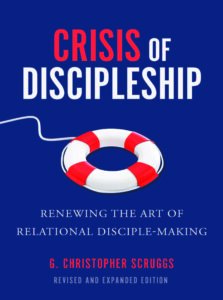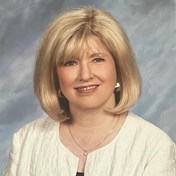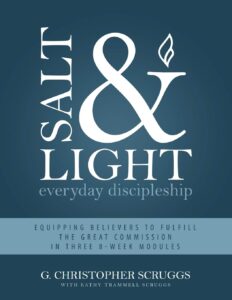 Every once in a while, the people who help me publish books remind me that I am a terrible marketer! Since I have two books out this year in different genres and am trying to finish a third, this blog is a natural transition from the apostle Paul. As I pointed out several times, the apostle Paul was not a lone ranger. He was brought into ministry by Barnabas. He ministered with many people, including Barnabas, Silas, Luke, Timothy, and others. In other words, Paul modeled a communitarian approach to ministry.
Every once in a while, the people who help me publish books remind me that I am a terrible marketer! Since I have two books out this year in different genres and am trying to finish a third, this blog is a natural transition from the apostle Paul. As I pointed out several times, the apostle Paul was not a lone ranger. He was brought into ministry by Barnabas. He ministered with many people, including Barnabas, Silas, Luke, Timothy, and others. In other words, Paul modeled a communitarian approach to ministry.
Crisis of Discipleship and Betsy Shaw
When I wrote Crisis of Discipleship: Renewing the Art of Relational Disciple-Making, I had in mind renewing the art of making disciples in relationships, not just with those being discipled but as part of a community dedicated to the Great Commission. [1] I believe it is necessary in our day and age to renew the art of making disciples in small groups, including churches, Bible studies, prayer groups, discipleship groups, and other vehicles.
 This weekend, I had the opportunity to return to my former church, Advent Presbyterian Church, in Cordova, Tennessee, for the funeral of a longtime colleague, Betsy Shaw. In some ways, Dave Schieber, who founded the church, and Betsy Shaw, who worked with the youth for many years and was the Director of Christian Education, exemplified the strategy I urge people to adopt. In doing this, they also made Advent an enjoyable place to be, worship, grow in Christ, and share the gospel with others. They created a dynamic, fun, and gospel-centered community where people could come and grow in Christ, bringing their families and friends. In all this, both of them sweetly, non-judgementally, and powerfully shared God’s love with others.
This weekend, I had the opportunity to return to my former church, Advent Presbyterian Church, in Cordova, Tennessee, for the funeral of a longtime colleague, Betsy Shaw. In some ways, Dave Schieber, who founded the church, and Betsy Shaw, who worked with the youth for many years and was the Director of Christian Education, exemplified the strategy I urge people to adopt. In doing this, they also made Advent an enjoyable place to be, worship, grow in Christ, and share the gospel with others. They created a dynamic, fun, and gospel-centered community where people could come and grow in Christ, bringing their families and friends. In all this, both of them sweetly, non-judgementally, and powerfully shared God’s love with others.
Dave and Betsy would not presume to say, nor would I presume to say, that Advent was the perfect church. It wasn’t. We had our problems, made our mistakes, and faced challenges with greater and lesser degrees of success. Nevertheless, there was a commitment to discipling people from when they joined the church, formed families, or otherwise entered our sphere of influence.
From its very beginning, Advent had a Wednesday evening, family-centered program. It was directed towards children, but children’s ministry was not the only focus. When the church grew large enough, it had a youth group, which, in time, was quite large. That youth group was an important part of the church because it ministered to the entire church in many ways, most notably by participating at a very high level of involvement every year in vacation Bible school.
When I say that Advent was oriented toward discipling families, I don’t want to suggest that singles were left out. We had many single parents. Those single parents knew the pastors and staff were dedicated to helping them raise their children. In addition, they knew that at least once a week, they could come to church, have a family meal together, allow the children to have a program, and go to a Bible study or hang out with friends until the program was complete.
In time, we would have over 100 youth and children in the building every Wednesday night, which required many volunteers. Betsy Shaw was the person who made sure we had enough volunteers. She also had the opportunity to support those volunteers, write them notes of appreciation, provide them with an annual dinner, and provide time off because the program did not run 12 months a year. She was also very good at supplying Sunday school teachers, youth, volunteers, and others with time off each year so that they would not burn out. It was an enormous task.
When I spoke at Betsy’s funeral, I pointed out that she knew every family in the church: the children, most of the grandchildren, and many cousins and other extended family members. She shared God’s love with everyone she met—and specifically with everyone in our congregation. There was hardly a question that one could ask about any facet of the church’s life involving any person in the church to which Betsy could not give wise advice. In addition, she worked very hard to be sure that the programs she supervised were fun and made disciples. Dave Schieber, the founder of the church, worked just as hard. In the end, for all of the faults we knew we had in our church and its programming, people sensed that the pastors and staff loved them, loved their children and grandchildren, and wanted to do their best to help them flourish in a problematic society.
Advent decided they needed a more advanced adult disciple-making program when I joined the group. Therefore, we developed a series of 34-week Bible studies going through the entire Bible and specific sections in detail. We also had a Bible study that studied the Bible by Christian doctrines so that our members could, if they desired, learn just a little about theology and how it affects Christian life.
These studies involved reading privately during the week, praying a prayer list, and coming together for a social time where we would pray, share, have a meal, and review the week’s study. In other words, the entire adult discipleship program was built around the same features we see operating in the New Testament. Most specifically, the following verses guided our structure:
They devoted themselves to the apostles’ teaching, fellowship, the breaking of bread, and prayer. Everyone was awed by the many wonders and signs performed by the apostles. All the believers were together and had everything in common. They sold property and possessions to give to anyone who had need. Every day, they continued to meet together in the temple courts. They broke bread in their homes and ate together with glad and sincere hearts, praising God and enjoying the people’s favor. And the Lord added to their number daily those who were being saved (Acts 2:42-47).
Salt & Light
 Just about the time I retired, we began to feel that the programming we had relied on for so long was no longer adequate for a new generation. Therefore, we begin to study how to reach a new generation. Out of that study and trial and error, we created what we called Salt & Light: Everyday Discipleship, a leadership development program designed for more traditional churches undertaking to be structured along the lines of churches with a robust Disciple Making Ministry program. [2] Out of this particular study, which I used at another church, I began to write the book Crisis of Discipleship, setting out general principles instead of a specific program. No two churches are exactly alike; therefore, no two churches can have the same disciple-making program. In Crisis of Discipleship, I was trying to set out some applicable general principles, no matter what kind of church you’re in, its theology, and its size.
Just about the time I retired, we began to feel that the programming we had relied on for so long was no longer adequate for a new generation. Therefore, we begin to study how to reach a new generation. Out of that study and trial and error, we created what we called Salt & Light: Everyday Discipleship, a leadership development program designed for more traditional churches undertaking to be structured along the lines of churches with a robust Disciple Making Ministry program. [2] Out of this particular study, which I used at another church, I began to write the book Crisis of Discipleship, setting out general principles instead of a specific program. No two churches are exactly alike; therefore, no two churches can have the same disciple-making program. In Crisis of Discipleship, I was trying to set out some applicable general principles, no matter what kind of church you’re in, its theology, and its size.
C. S. Lewis, J. R. R. Tolkien, and Developing a Classical WorldView
One of the difficulties pastors and local congregations face today is our culture’s resistance to the Christian faith and especially to Christian discipleship. Before I became a Christian, I read a few books by C. S. Lewis and J.R.R. Tolkien. I was particularly fascinated by Lewis’s Space Trilogy and Tolkien’s Lord of the Rings trilogy.
Some people would describe what Lewis and Tolkien were doing as “pre-evangelism.” I often tell people that reading C.S. Lewis did not make me a Christian, but he did open up my mind to the possibility that the Christian faith might be true. It took a community of believers in Houston, Texas, and a small group Bible study to bring me to Christ. Nevertheless, Lewis and Tolkien played a vital role in my coming to Christ and early Christian discipleship. I became a believer in 1977 and 1979. I had probably read every book that either Lewis or Tolkien (and several of their friends) had written. Lewis and Tolkien were members of the Inklings, one of which was an author named Charles Williams, who wrote what he called “Spiritual Thrillers.” I have enjoyed reading Williams’ novels over the years, and he was one of the inspirations for my own novels.
Marshland and Peace at Battle Mountain
 When I retired, I decided that it would be a good idea if I tried to write a novel. I’d wanted to write a novel for years but never had the time. In retirement, I had the time. Therefore, I sat down one cold winter day and began riding the book that became Marshland. By the time I finished Marshland, I was pretty sure it was the first book of an eventual trilogy, the second of which has just been published, Peace at Battle Mountain. [3] I plan on beginning the last of the novels on a cold January morning next year.
When I retired, I decided that it would be a good idea if I tried to write a novel. I’d wanted to write a novel for years but never had the time. In retirement, I had the time. Therefore, I sat down one cold winter day and began riding the book that became Marshland. By the time I finished Marshland, I was pretty sure it was the first book of an eventual trilogy, the second of which has just been published, Peace at Battle Mountain. [3] I plan on beginning the last of the novels on a cold January morning next year.
 Each book deals with a spiritual battle. The first examines whether there are spiritual realities, which, in a way, is about faith. The second, Peace at Battle Mountain, asks, “Why do humans have so much trouble creating and sustaining healthy relationships? Why do we find it so hard to love other people selfishly?”
Each book deals with a spiritual battle. The first examines whether there are spiritual realities, which, in a way, is about faith. The second, Peace at Battle Mountain, asks, “Why do humans have so much trouble creating and sustaining healthy relationships? Why do we find it so hard to love other people selfishly?”
However, these are not traditional Christian books by any means. Each novel involves an economic crime, one or more murders, and characters struggling to make sense of their lives. I have been careful not to follow the simple formula: “A wounded person comes to Christ, and everything is fine.”
People like to read murder mysteries, including mafiosos, spies, greedy, business people, and other exciting characters. My first career was as a corporate lawyer. It’s fun to look at economic crises and the type of misbehavior that causes them. But, most importantly, people struggle to make sense of their lives.
In Marshland and Peace at Battle Mountain, I’m encouraging people to ponder whether or not a more Christian view of life would help them muddle through life. In the process, I’m trying to entertain people with a thriller. I’m not trying to be preachy, and I’m staying open to the value of other world religions and faith systems. But in the end, some of the characters are Christians.
Conclusion
I’m unsure exactly where the series of blogs is going in the next few months. To meet my obligations to those who have helped me write these books, I need to spend some time talking about them and why they were written. On the other hand, I will publish another book about political philosophy before the end of the year. I want to talk a little about our Constitution and a fundamental way of looking at it in this postmodern era. I hope these blogs and books help people understand our culture and life wisely and lovingly in these troubled times.
Copyright 2024, G. Christopher Scruggs, All Rights Reserved
[1] G. Christopher Scruggs, Crisis of Discipleship: Renewing the Art of Relational Disciple-Making Rev, Ed. (Richmond, VA: Living Dialogue Ministries, 2024).
[2] G. Christopher and Kathy T. Scruggs, Salt & Light: Everyday Discipleship (Collierville, TN: Innovo, 2017).
[3] Alystair West, Marshland (Bloomington, IN: Westbow 2023) & Peace at Battle Mountain (Hunt, Texas: Quansus Publishing, 2014). Marshland and Peace at Battle Mountain are written under the penname “Alystair West.”
